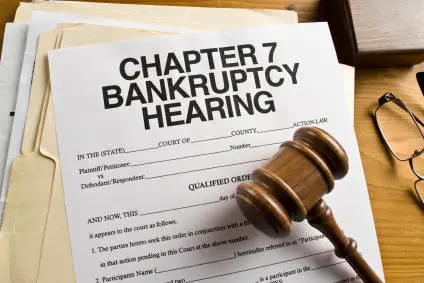Mortgage Debt & Reopening a Chapter 7

Get rid of your debt faster with debt relief
Choose your debt amount
Or speak to a debt consultant 844-731-0836
May I reopen my Chapter 7 case from two years ago and add a mortgage?
I filed Chapter 7 two years ago and kept my home. I'm just caught up on my payments. I want to sell my home but I can't get out what I owe on it. I tried a short sale offer, but it was not reasonable to the mortgage company. I can't rent my home because it's not allowed in my neighborhood. I don't know how to get out of this without them coming after me. I'm not worried about my credit because it's already bad. Can I still surrender my home if the payments are current? Should I reopen my case?
First, consider making another offer of a short sale to the mortgage company. You mentioned that your first offer was not reasonable to the mortgage company. Perhaps you can ask them what a reasonable offer is in your situation.
Second, go to Making Home Affordable to see if you qualify for this program.
Third, trying to reopen your Chapter 7 case to seek the discharge of your mortgage debt may be a viable option. A discharge of your mortgage debt in bankruptcy certainly would make walking away from the house much easier, as you would not be stuck with a deficiency balance that could result from foreclosure proceedings.
The first thing you need to do if you want to try to reopen your bankruptcy case is to consult with your attorney (preferably the same attorney who filed your previous case, if your past experience with him/her was positive) to find out if reopening your case is even possible. If so, learn what steps you need to take to make it happen. Generally, your lawyer would simply need to file a petition with the court requesting that your case be reopened, which would be filed along with an explanation of why the court should consider reopening the case. Once the case is reopened, he/she would likely file an amended creditor schedule and any other documents required by the particulars of your situation. If all goes well, you would be required to surrender the property to the creditor, and the bankruptcy court would discharge your mortgage debt.
Whether the bankruptcy court will allow you to reopen your case will depend on numerous factors, but ultimately the decision to reopen your case is at the judge’s discretion. In your case, the most important issue will likely be when you entered into the mortgage agreement, as that date will determine whether the debt can be discharged as part of the case you filed two years ago. If you took out the loan before you filed for bankruptcy protection, the discharge of the debt is possible.
However, if the mortgage was signed after you filed your bankruptcy petition, then the court probably will not be able to offer you relief within the scope of your previously closed Chapter 7. Also, if you reaffirmed on the mortgage during the original proceedings, which may have been necessary at that time to keep the house, the court may be unable to discharge your obligations under the reaffirmation agreement.
Consult with a qualified bankruptcy attorney so that you can discuss these and any other potential problems. Your lawyer should also be able to tell you how likely the court will be to grant your motion to reopen your case based on his/her previous experience with the courts in your federal district and with the individual judge involved.
If you would like to read more about the reopening of bankruptcy cases and the issues involved, you can read the US Department of Justice document The Law of Reopening: Revisited. In addition, I invite you to visit the Bills.com bankruptcy page for more information about bankruptcy and the alternatives available to consumers.
I wish you the best of luck and hope that the information I provided helps you Find. Learn. Save.
Best,
Bill
Dealing with debt
Mortgages, credit cards, student loans, personal loans, and auto loans are common types of debts. According to the NY Federal Reserve total household debt as of Q4 2023 was $17.503 trillion. Housing debt totaled $12.612 trillion and non-housing debt was $4.891 trillion.
A significant percentage of people in the US are struggling with monthly payments and about 26% of households in the United States have debt in collections. According to data gathered by Urban.org from a sample of credit reports, the median debt in collections is $1,739. Credit card debt is prevalent and 3% have delinquent or derogatory card debt. The median debt in collections is $422.
Collection and delinquency rates vary by state. For example, in Florida, 13% have student loan debt. Of those holding student loan debt, 9% are in default. Auto/retail loan delinquency rate is 4%.
While many households can comfortably pay off their debt, it is clear that many people are struggling with debt. Make sure that you analyze your situation and find the best debt payoff solutions to match your situation.